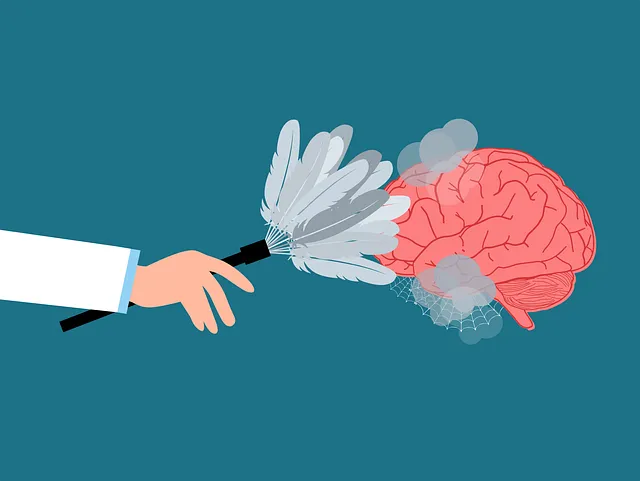The Kaiser Permanente behavioral health center in Superior utilizes a data-driven, community-centric approach to outreach. By analyzing local demographics and mental health challenges, they customize programs like Mental Health Education and Trauma Support Services for diverse populations. Through interactive workshops, seminars, and awareness campaigns, the center promotes mental health literacy, early intervention, and partnerships with communities. Their innovative stress reduction methods and culturally sensitive communication strategies are evaluated through data-backed metrics, ensuring efficient allocation of resources to meet Superior's unique mental healthcare needs.
Community outreach programs play a pivotal role in bridging the gap between healthcare services and those who need them most. This article explores how such initiatives can be both effective and impactful, using the Kaiser Permanente Behavioral Health Center in Superior as a case study. We delve into understanding local needs, engaging communities through innovative strategies, and measuring success to ensure these programs leave a lasting, positive influence.
- Understanding Community Needs: A Foundation for Effective Outreach
- Strategies for Engaging and Educating Communities: Kaiser Permanente Behavioral Health Center's Approach
- Measuring Success: Evaluating the Impact of Community Outreach Programs in Superior
Understanding Community Needs: A Foundation for Effective Outreach

Understanding Community Needs is a foundational step for effective outreach programs, especially at Kaiser Permanente behavioral health centers. By assessing local demographics and identifying specific mental health challenges, such as elevated rates of trauma or unmet needs in mood management, healthcare providers can tailor their initiatives. This personalized approach ensures that outreach efforts resonate with the community, fostering trust and engagement.
For instance, designing Mental Health Education Programs that cater to diverse populations requires considering cultural sensitivities and unique barriers to care. Incorporating Trauma Support Services within these programs can significantly impact communities grappling with historical or recent traumas. Such a targeted strategy not only enhances access to essential services but also promotes community healing and well-being, ultimately leading to superior outcomes for those seeking behavioral health support.
Strategies for Engaging and Educating Communities: Kaiser Permanente Behavioral Health Center's Approach

The Kaiser Permanente Behavioral Health Center has pioneered an innovative approach to community outreach program implementation, prioritizing engagement and education as key strategies for fostering better mental health outcomes. Their superior model incorporates both Cultural Sensitivity in Mental Healthcare Practice and Mental Health Policy Analysis and Advocacy to ensure comprehensive care tailored to diverse community needs.
Through a series of interactive workshops, seminars, and awareness campaigns, the center actively educates community members about mental health issues, breaking down stigma and promoting early intervention. This bottom-up approach, coupled with advocacy for better mental health policies, has proven effective in building strong partnerships between healthcare providers and communities they serve. By integrating these strategies, Kaiser Permanente Behavioral Health Center exemplifies a successful Community Outreach Program Implementation that drives positive change in mental healthcare accessibility and quality.
Measuring Success: Evaluating the Impact of Community Outreach Programs in Superior

Measuring the success of community outreach programs is vital to understanding their true impact and effectiveness. In Superior, the Kaiser Permanente behavioral health center has implemented various initiatives aimed at improving mental healthcare access among diverse communities. These programs focus on innovative stress reduction methods and employ dynamic communication strategies tailored to different cultural backgrounds, reflecting cultural sensitivity in mental healthcare practice.
By evaluating outcomes such as increased community engagement, improved healthcare literacy, and enhanced access to services, the center can assess the success of these initiatives. This data-driven approach allows for continuous improvement, ensuring that resources are allocated effectively to meet the unique needs of Superior’s diverse population.
Community outreach programs, as exemplified by Kaiser Permanente Behavioral Health Center’s successful initiatives in Superior, play a pivotal role in addressing diverse community needs. By understanding local requirements and employing strategic engagement methods, these programs can significantly impact population health. Measuring success through thorough evaluation ensures that resources are allocated effectively, fostering continuous improvement and positive change within the community. This holistic approach, inspired by innovative models like Kaiser Permanente’s, is key to creating sustainable, inclusive, and resilient communities.






